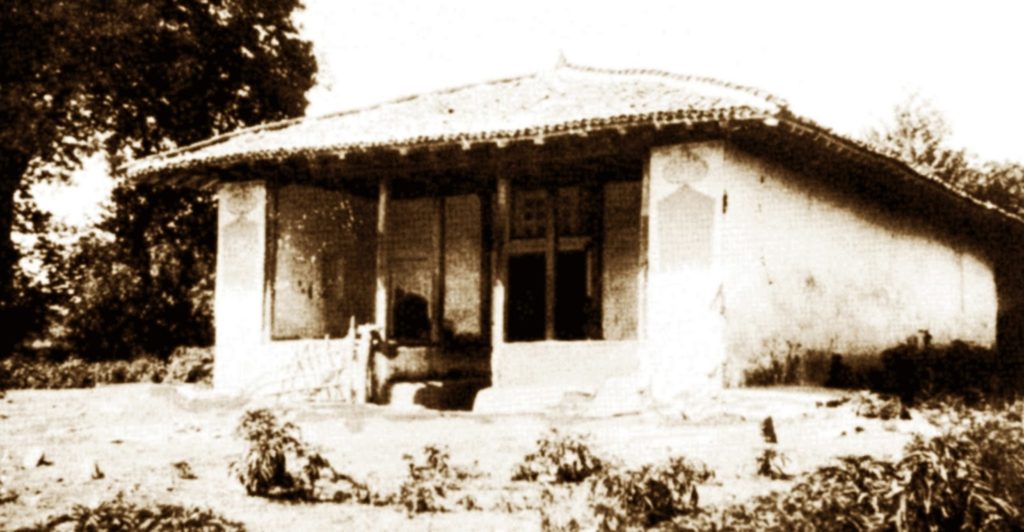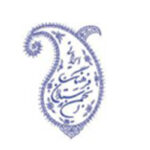The completion of Fort Shaykh Tabarsí
Continuing our series of stories from the Dawn-Breakers leading up to the bicentenary of the Birth of the Báb, here we share an excerpt from one of the most dramatic chapters, “The Mázindarán Upheaval.”
The construction of Fort Tabarsí was in its final stages when Bahá’u’lláh visited the camp. At His instruction, Quddús was released from captivity and joined Mulla Husayn and his companions at the fort. His arrival rendered it “complete and perfect,” and fulfilled the wishes of Bahá’u’lláh.
“The work had scarcely been completed [on Fort Tabarsí] when Shaykh Abú-Turáb arrived bearing the news of Bahá’u’lláh’s arrival at the village of Nazar Khán. He informed Mullá Husayn that he had been specially commanded by Bahá’u’lláh to inform them that they all were to be His guests that night and that He Himself would join them that same afternoon.
I have heard Mullá Mírzá Muhammad-i-Furúghí recount the following: “The tidings which Shaykh Abú-Turáb brought imparted an indefinable joy to the heart or Mullá Husayn. He hastened immediately to his companions and bade them bestir themselves for the reception of Bahá’u’lláh. He himself joined them in sweeping and sprinkling with water the approaches to the shrine, and attended in person to whatever was necessary for the arrival of the beloved Visitor. As soon as he saw Him approaching with Nazar Khán, he rushed forward, tenderly embraced Him, and conducted Him to the place of honour which he had reserved for His reception. We were too blind in those days to recognise the glory of Him whom our leader had introduced with such reverence and love into our midst. What Mullá Husayn had perceived, our dull vision was as yet unable to recognise. With what solicitude he received Him in his arms! What feelings of rapturous delight filled his heart on seeing Him! He was so lost in admiration that he was utterly oblivious of us all. His soul was so wrapt in contemplation of that countenance that we who were awaiting his permission to be seated were kept standing a long time beside him. It was Bahá’u’lláh Himself who finally bade us be seated. We, too, were soon made to feel, however inadequately, the charm of His utterance, though none of us were even dimly aware of the infinite potency latent in His words.
Bahá’u’lláh, in the course of that visit, inspected the fort and expressed His satisfaction with the work that had been accomplished. In His conversation with Mullá Husayn, He explained in detail such matters as were vital to the welfare and safety of his companions. ‘The one thing this fort and company require,’ He said, ‘is the presence of Quddús. His association with this company would render it complete and perfect.’ He instructed Mullá Husayn to despatch Mullá Mihdíy-i-Khú’í with six people to Sarí, and to demand Mírzá Muhammad-Taqí that he immediately deliver Quddús into their hands. ‘The fear of God and the dread of His punishment,’ He assured Mullá Husayn, ‘will prompt him to surrender unhesitatingly his captive.’
Ere He departed, Bahá’u’lláh enjoined them to be patient and resigned to the will of the Almighty. ‘If it be His will,’ He added, ‘We shall once again visit you at this same spot, and shall lend you Our assistance. You have been chosen of God to be the vanguard of His host and the establishers of His Faith. His host verily will conquer. Whatever may befall, victory is yours, a victory which is complete and certain.’ With these words, He committed those valiant companions to the care of God, and returned to the village with Nazar Khán and Shaykh Abú-Turáb. From thence He departed by way of Núr to Tihran.”
Mullá Husayn set out immediately to carry out the instructions he had received. Summoning Mullá Mihdí, he bade him proceed together with six other companions to Sarí and ask that the mujtahid liberate his prisoner. As soon as the message was conveyed to him, Mírzá Muhammad-Taqí unconditionally acceded to their request. The potency with which that message had been endowed seemed to have completely disarmed him. “I have regarded him,” he hastened to assure the messengers, “only as an honoured guest in my house. It would be unbecoming of me to pretend to have dismissed or released him. He is at liberty to do as he desires. Should he wish it, I would be willing to accompany him.”
Mullá Husayn had in the meantime apprised his companions of the approach of Quddús, and had enjoined them to observe towards him a reverence such as they would feel prompted to show to the Báb Himself. “As to myself,” he added, “you must consider me as his lowly servant. You should bear him such loyalty that if he were to command you to take my life, you would unhesitatingly obey. If you waver or hesitate, you will have shown your disloyalty to your Faith. Not until he summons you to his presence must you in any wise venture to intrude upon him. You should forsake your desires and cling to his will and pleasure. You should refrain from kissing either his hands or his feet, for his blessed heart dislikes such evidences of reverent affection. Such should be your behaviour that I may feel proud of you before him. The glory and authority with which he has been invested must needs be duly recognised by even the most insignificant of his companions. Whoso departs from the spirit and letter of my admonitions, a grievous chastisement will surely overtake him.”
While in Sarí, Quddús frequently attempted to convince Mírzá Muhammad-Taqí of the truth of the Divine Message. He freely conversed with him on the most weighty and outstanding issues related to the Revelation of the Báb. His bold and challenging remarks were couched in such gentle, such persuasive and courteous language, and delivered with such geniality and humour, that those who heard him felt not in the least offended. They even misconstrued his allusions to the sacred Book as humorous observations intended to entertain his hearers. Mírzá Muhammad-Taqí, despite the cruelty and wickedness that were latent in him and which he subsequently manifested by the stand he took in insisting upon the extermination of the remnants of the defenders of the fort of Shaykh Tabarsí, was withheld by an inner power from showing the least disrespect to Quddús while the latter was confined in his home. He even was prompted to prevent the inhabitants of Sarí from offending Quddús, and was often heard to rebuke them for the harm which they desired to inflict upon him.
The news of the impending arrival of Quddús bestirred the occupants of the fort of Tabarsí. As he drew near his destination, he sent forward a messenger to announce his approach. The joyful tidings gave them new courage and strength. Roused to a burst of enthusiasm which he could not repress, Mullá Husayn started to his feet and, escorted by about a hundred of his companions, hastened to meet the expected visitor. He placed two candles in the hands of each, lighted them himself, and bade them proceed to meet Quddús. The darkness of the night was dispelled by the radiance which those joyous hearts shed as they marched forth to meet their beloved. In the midst of the forest of Mázindarán, their eyes instantly recognised the face which they had longed to behold. They pressed eagerly around his steed, and with every mark of devotion aid him their tribute of love and undying allegiance. Still holding the lighted candles in their hands, they followed him on foot towards their destination. Quddús, as he rode along in their midst, appeared as the day-star that shines amidst its satellites. As the company slowly wended its way towards the fort, there broke forth the hymn of glorification and praise intoned by the band of his enthusiastic admirers. “Holy, holy, the Lord our God, the Lord of the angels and the spirit!” rang their jubilant voices around him. Mullá Husayn raised the glad refrain, to which the entire company responded. The forest of Mázindarán re-echoed to the sound of their acclamations. In this manner they reached the shrine of Shaykh Tabarsí. The first words that fell from the lips of Quddús after he had dismounted and leaned against the shrine were the following: “The Baqíyyatu’lláh[353] will be best for you if ye are of those who believe.” By this utterance was fulfilled the prophecy of Muhammad as recorded in the following tradition: “And when the Mihdí is made manifest, He shall lean His back against the Ka’bih and shall address to the three hundred and thirteen followers who will have grouped around Him, these words: ‘The Baqíyyatu’lláh will be best for you if ye are of those who believe.’” By “Baqíyyatu’lláh” Quddús meant none other than Bahá’u’lláh.”
– Nabíl-i-A`zam, The Dawn-Breakers: Nabíl’s Narrative of the Early Days of the Bahá’í Revelation, pp. 347-353.
Category: Stories









